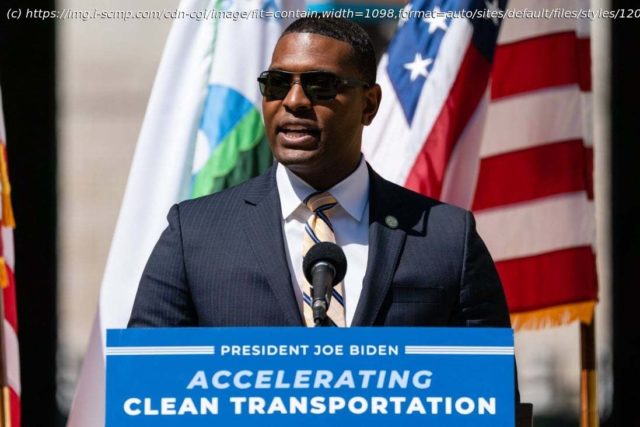The proposed emission standards outlined by the Biden administration will accelerate the transition to a clean-vehicle future, tackle the climate crisis and improve air quality across the US, EPA administrator says.
The Biden administration proposed to crack down on vehicle pollution with tailpipe emission limits so tough they will effectively compel carmakers to ensure two out of every three cars and light trucks sold in 2032 are electric models. The standards outlined by the Environmental Protection Agency on Wednesday are on track to be among the strongest in the world, propelling electric vehicle (EV) sales well beyond even the rosiest third-party forecasts. “Today’s actions will accelerate our ongoing transition to a clean-vehicle future, tackle the climate crisis head on and improve air quality for communities all across the country,” EPA administrator Michael Regan said at a ceremony outside the agency’s headquarters in Washington. Still, there are questions about the ability of car manufacturers to fulfil the fleet-wide limits on carbon dioxide, soot and smog-forming pollution. The Alliance for Automotive Innovation warned that factors outside the industry’s direct control – including the buildout of US power grids, charging stations and battery manufacturing – will play an outsize role in dictating the pace of EV penetration. “EPA’s proposed emissions plan is aggressive by any measure,” said John Bozzella, head of the alliance. “A lot has to go right for this massive – and unprecedented – change in our automotive market and industrial base to succeed.” Under the proposal, carbon dioxide emissions from car and light truck fleets would be capped at 82 grams per mile in model year 2032, representing a 56 per cent reduction from model year 2026 standards. Some 7.3 billion tons of CO2 emissions would be avoided through the year 2055, which the EPA said was equivalent to eliminating all greenhouse gas releases from the entire US transport sector for four years. Regan stressed that the performance-based standards give carmakers options to comply and are not meant to “drive any particular technology out of business”.






